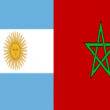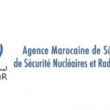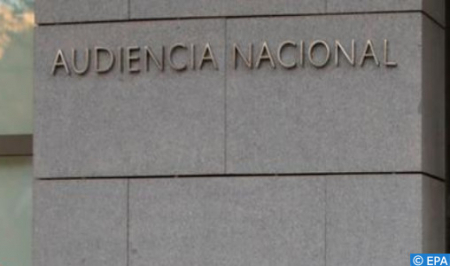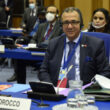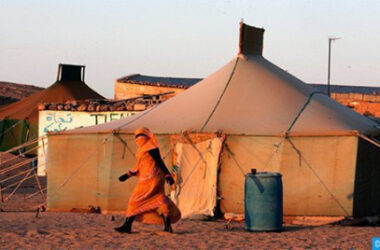In Spain, the trial of polisario activists for acts of terrorism is further proof of the collusion between this armed militia and terrorist groups in the Sahel-Saharan region. The evidence shows that the extension of the terrorist vocation of the “polisario” constitutes a serious threat to the security of Europe and the well-being of its population, and undermines the values of tolerance and respect that have been promoted for centuries.
The latest episode in this atrocious series is the sentence handed down on Tuesday by the Audiencia Nacional, Spain’s highest criminal court, against a pro ‘polisario’, prosecuted for spreading jihadist propaganda through social networks in which he expressed his hatred for Spain.
The accused, M.A.M., alias Ismail, confessed to being the perpetrator of a crime of terrorist indoctrination, to being part of the terrorist organization Islamic State in the Greater Sahara (ISGS) and to having had links in the past with the former head of ISGS, Abou Walid Al Sahrawi, another pro-‘polisario’ killed by the French armed forces in August 2021.
An active member of Daech on social networks and various mobile applications, the accused, who maintained close relations with other jihadists in conflict zones, harbored a deep hatred for Spain, the country that welcomed and built him.
This case is not the first in the terrorist record of the ‘polisario’ in Spain. In March 2021, Spanish police captured another separatist activist in Vizcaya (Basque Country), accused of inciting terrorist acts against Moroccan institutions in Spain and abroad.
The highly radicalized individual used social media profiles to incite terrorist acts against Moroccan individuals and institutions in Spain and abroad, and was very active on social media, managing numerous accounts and with a large number of Spanish and foreign followers amounting to more than 20,000 people, who received his messages inciting to commit attacks.
He continuously published his own videos in which he advocated terrorist acts, mainly against all Saharawi unionists, and claimed to be ready to commit them himself.
These cases confirm, in fact, the relevance of the warnings issued by several reports by international research centers and experts who have denounced the links between the “polisario” militias and the terrorist networks operating in the Sahel-Saharan region and in the conflict zones.
After the Sahel-Saharan region, concern has reached Europe, following the resurgence of the phenomenon of “polisario” elements belonging to terrorist organizations, a finding that leaves no doubt about the capacity of these militias to threaten the stability of Europe and even to take action.
Among other things, the reports warn that weapons that have entered into circulation in the context of the instability arising from the situation in Libya will end up in the European Union. A few years ago, Europol publicly stated for the first time that firearms from the conflicts in Libya, Syria and Mali were available on the European black market and that these countries could become important suppliers of illegal firearms to the EU.
Several operations to dismantle terrorist cells linked to terrorist groups active in the Sahel and Sahara region since 2008 have revealed close links between the “polisario” and terrorism in the region, making the Tindouf camps a fertile ground for the emergence of terrorist movements. In this context, the Tindouf camps have become a reservoir for the recruitment of terrorists for the various terrorist organizations active in this region.
In the face of these warnings, based on irrefutable evidence, think tanks and organizations have multiplied their appeals to the international community to intensify their efforts to put an end to this new hotbed of extremism, which mortgages the future of a region and an entire continent.


